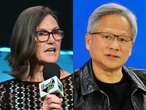With half of 2024 now on the books, U.S. electric vehicle sales continue to grow, for some manufacturers by leaps and bounds. But the overall pace has slowed compared to last year at this time.
Here’s an analogy: Think of the transition to electrified transportation as a long car trip. For some stretches, we’ve gone 80 mph. Right now we’re doing about 50 mph. We’re still heading in the right direction, but if we don’t pick up the pace, we’re going to get to our destination later than we’d like.
In the first half of 2024, automakers delivered 599,372 EVs to customers in the United States, an increase of 7.3% from the first half of 2023, according to Cox Automotive and Kelley Blue Book.
“There’s still demand,” said Stephanie Valdez Streaty, director of industry insights for Cox Automotive. “We’re just not seeing the growth that we had previously seen.”
The larger point, she said, is that the speed of the shift to EVs is going to vary over time.
EV sales strengthened in the second quarter, with a market share of 8% of all new cars and light trucks sold, an increase from 7.1% in the first quarter. Tesla played a big role, as its drop in U.S. sales in the second quarter was much smaller than the company’s drop in sales in the first quarter. Tesla delivered 164,264 vehicles in the second quarter, which was down 6.3% from the second quarter of 2023, according to Cox. In the first quarter, Tesla’s deliveries were down 13.3% compared to the first quarter of last year.
Tesla has struggled because of a lack of a major new model and an increase in competition from other automakers that are expanding and improving their EV lineups.
The shift among competitors has meant that Tesla’s sales are no longer a majority of the EV sales in the United States, falling to just below 50% in the second quarter.
Ford, Kia, Hyundai, and BMW were among the automakers that posted big increases in EV sales in the first half. Volkswagen’s EV sales were down.
Streaty said second-quarter EV sales were “surprisingly strong,” considering the many factors that could hinder sales. Among the factors are high interest rates, which are leading to much higher monthly payments for any vehicle, not just EVs.
Winners and Losers
Ford continues to stand out for its strong EV sales this year, trailing only Tesla as the top-selling EV brand in the country. Ford sold 44,180 EVs in the first half of 2024, an increase of 71.8% from the first half of 2023.
Kia was another big winner in the first half, selling 27,634 EVs, an increase of 103.7%.
BMW has also had a strong first half. The automaker posted sales of 24,794 vehicles, an increase of 38%.
While overall EV sales continue to grow, several automakers sold fewer EVs in the first half of this year compared to the same period last year. In addition to Tesla, the companies with negative numbers include Volkswagen, which was down 27.9%.
Volkswagen has just one EV on U.S. dealer lots right now, the ID.4 crossover, and its sales were down in the first half. A Volkswagen spokesman said the drop in sales was largely because the 2024 model year version of the ID.4 was late to arrive at dealerships this spring.
The company will get a new EV later this year, the ID.Buzz, a model that aims to be an electric version of the classic Volkswagen bus.
Chevrolet was down 40.8% as it has stopped production of its top seller, the Bolt, and it has just begun to ramp up sales of another model aimed at the middle of the market, the Equinox EV.
Hyundai Faces Legal Action
Hyundai has enjoyed mostly good news related to its EV lineup, with strong sales and glowing reviews from automotive journalists. But a new lawsuit says the South Korea-based automaker put pressure on its dealers to falsify reports so EV sales would appear higher than they really were.
Napleton Aurora Imports, part of a company that includes Hyundai franchises in several states, filed the case in Chicago federal court, according to Reuters. The lawsuit says Hyundai encouraged dealers to falsely categorize loaner vehicles as having been sold, and then rewarded dealers that did this by giving additional wholesale discounts.
Hyundai said it does not condone falsifying sales data and is investigating the claims.
Hyundai also implied that the lawsuit is part of a larger conflict between the manufacturer and this particular dealer.
“We asked that the Napleton organization pause the filing of this lawsuit pending the completion of our internal investigation,” Hyundai’s U.S. office said in a statement. “They chose, instead, to file the lawsuit after we made it clear that we would not agree to withdraw from our litigation against the Napleton organization in South Florida.”
In the Florida litigation, Hyundai wants to terminate Napleton’s two West Palm Beach stores because of an executive who had been charged with sexual battery of an employee. The assault, which was widely covered in local media, ended in a plea agreement in which the executive, Edward Napleton Jr., agreed to a charge of felony battery and was sentenced to five years of probation.
I asked Napleton to respond. The company said Hyundai’s linking of the sales data issue with the dispute over the Florida franchises is “unfortunate, but unsurprising.”
“Hyundai is merely attempting to deflect attention from its false sales reporting and other unlawful and anticompetitive conduct that harms innocent dealers and their customers,” the company said in an email.
If Hyundai has encouraged its dealers to falsify sales data, that would undermine the idea of the company as one of the great success stories of the shift to EVs.
Outlook Good
Streaty expects EV sales to accelerate in the second half of this year.
Some of the growth will come from new or recently introduced models with price points that aim to appeal to the middle of the market. This includes the Chevrolet Equinox EV, which has gradually been arriving at dealerships since its introduction in May and has a base price of $41,900 before tax credits.
“As we get more product in different segments that’s affordable, that’s going to be key,” Streaty said.
This article originally appeared on Inside Climate News. It is republished with permission.







No comments